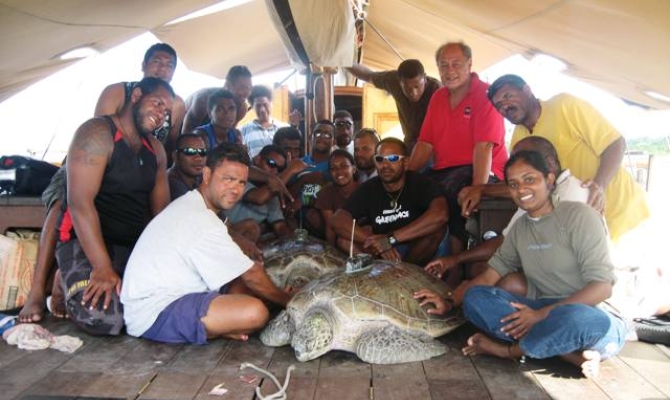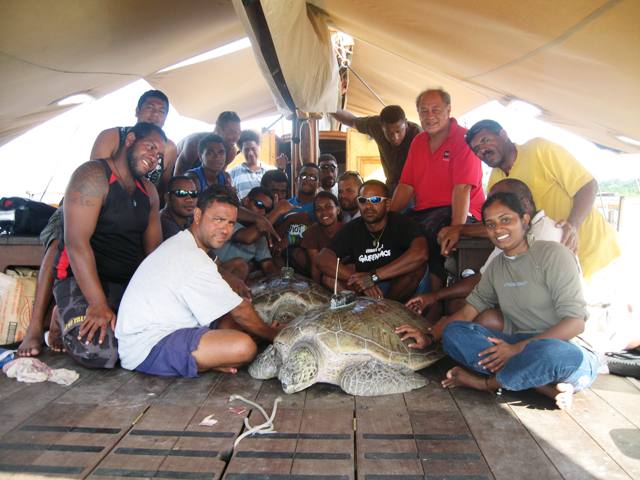
"A healthy Pacific ocean with sustainable populations of whales, dolphins, marine turtles, dugongs and other species, and meets the aspirations of Pacific Island peoples and protects their natural and cultural heritage."

This is the vision of the Pacific Islands Regional Marine Species Programme 2013 – 2017 that was endorsed at the twenty-third annual meeting of the Pacific Regional Environment Programme (SPREP) in New Caledonia last year.
The Programme contains actions plans for the conservation of dugongs; marine turtles; and whales and dolphins.
"The 2013–2017 Marine Species Action Plans are built on the momentum generated by the successful implementation of previous plans," said Mr. David Sheppard, Director-General of SPREP.
"Many advances and achievements have been made in the areas of policy, legislation, research and awareness to secure significant protection for marine species, including through establishment of marine protected areas, national Exclusive Economic Zone-wide sanctuaries, moratoria and regional agreements concluded under international conventions."
The Programme outlines conservation challenges; strategic approaches; and roles and responsibilities and implementation and coordination. It then leads into the action plans for conserving the different marine species – all of which were developed through in-depth consultation with, and input from, Pacific governments, partners and stakeholders.
This Pacific regional plan of action is dedicated to the memory of the late Mr. Lui Bell. He was the Marine Species Adviser for seven years and was a driving force for marine species conservation and management in the region. The 2013–2017 marine species programme is the culmination of many years of Lui's work with partners and governments.
However, his legacy will be in the action taken to successfully conserve and manage dugongs, turtles, cetaceans and other marine species.
"Already the impact of Lui's work and commitment can be seen in the establishment of whale and shark sanctuaries across the Pacific, and in our improved knowledge of the regional status of turtles," said Mr. Sheppard.